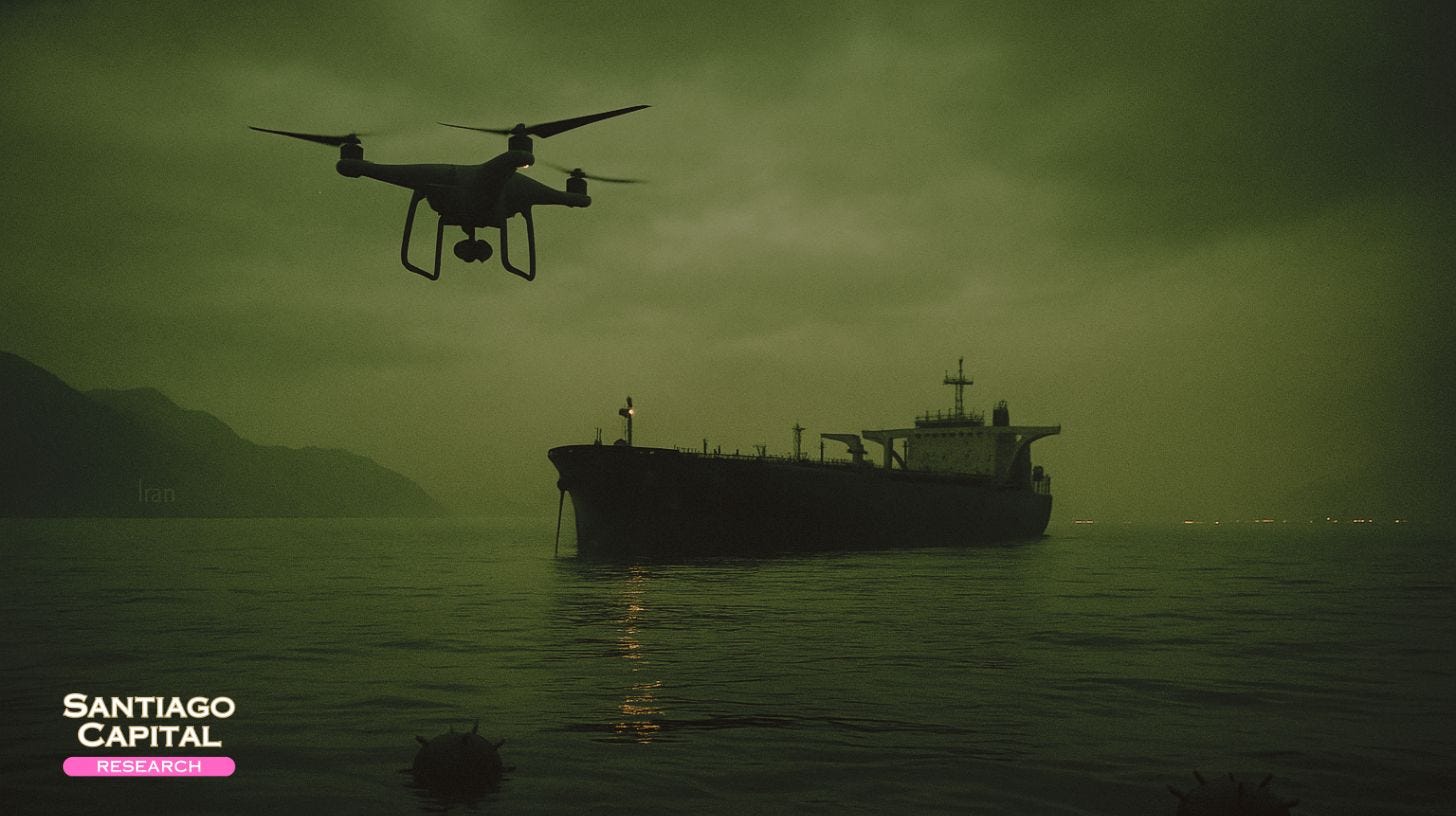Dire Straits
When the world economy depends on passing through the eye of a needle
“Now the Sirens have a still more fatal weapon than their song, namely their silence…” - Franz Kafka
It’s always the small details that change everything.
Not the vast oceans or sweeping continents, but the tight, forgotten corridors through which the world quietly breathes.
A single pipeline. A shipping lane. A strip of land or a sliver of sea.
History doesn’t hinge on abundance…it hinges on access. And access has a way of disappearing at the worst possible time.
There are certain locations on Earth that are both too vital to ignore and too fragile to defend perfectly. Places where the illusion of stability is maintained only by mutual fear, well-rehearsed restraint, and the collective decision not to test the edge.
But what happens when someone does? What happens when the cost of keeping something open becomes higher than the cost of closing it? What happens when the world assumes continuity… and gets interruption?
We like to believe the global economy is robust…diversified, agile, redundant.
But in truth, it’s a machine built on convenience and repetition. Break one gear, and the entire system groans. Jam one valve, and the pressure builds. Turn one key the wrong way, and the illusion of order collapses faster than anyone is prepared for.
There are questions we don’t like to ask…because the answers force us to confront how exposed we really are.
Background
At just 21 miles across at its narrowest point, the Strait of Hormuz is barely visible on most world maps.
To the casual observer, it appears as little more than a crease between the Arabian Peninsula and the southern coast of Iran…a geographic footnote.
And yet, this tiny stretch of water holds disproportionate power over the global economy, the security of nations, and the daily cost of living for billions of people.
It is no exaggeration to say that modern civilization, in its current form, cannot function without what passes through that strait.
For decades, policymakers and market participants have assumed it will remain open. They’ve had to. The alternative is too disruptive to model, too politically fraught to discuss, and too economically destructive to hedge.
But what if that assumption is no longer safe? What if the very premise of uninterrupted passage is quietly fraying?
The Strait of Hormuz is a pressure point. And pressure points don’t have to break to cause damage…they only need to be touched.




